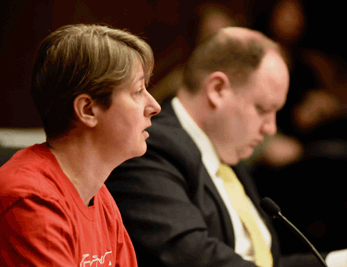A Nurse Speaks Out Against the National Nurse Compact
(Note: Two bills to enter Minnesota in the National Nurse Licensure Compact have been introduced in the Legislature. This would allow nurses from other states to practice in Minnesota without a Minnesota nurse license. The following is from testimony given Tuesday, March 27 in the Minnesota House Health and Human Services Reform Committee.)
My name is Sharon Carlson. I am a bedside nurse that works in the perioperative care center at Abbott Northwestern hospital. Perioperative careis the care that is given before, during and after surgery. As well as being a staff nurse I have the privilege of being a charge nurse in our Pre-Op, PACU, day surgery and cardiovascular recovery areas.
… Read more about: A Nurse Speaks Out Against the National Nurse Compact »











